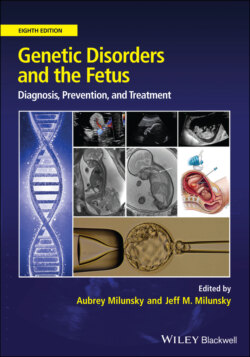Читать книгу Genetic Disorders and the Fetus - Группа авторов - Страница 22
Expertise in genetic counseling
ОглавлениеGenetic counseling is best provided by board‐certified clinical geneticists and genetic counselors. In countries with this specialization, such service is provided by a team composed of clinical geneticists (physicians) and genetic counselors, working in concert with clinical cytogeneticists and biochemical and molecular geneticists. It is, however, impractical and not cost effective to provide such formal counseling for every woman before prenatal diagnosis for advanced maternal age. It is necessary for the obstetrician to be fully informed about the indications for prenatal diagnosis and to explain the techniques and requirements for obtaining amniotic fluid or chorionic villi, the limitations of the studies, the risks of chromosomal abnormality in the offspring of the patient being counseled, the risks of the procedure, and, when pertinent, all matters concerned with elective abortion of an abnormal fetus.200
Gordis et al.201 concluded that the way in which an obstetrician managed patients at risk regarding referral for genetic screening was closely related to that obstetrician's attitudes and education. Physicians in practice should be aware of the nuances and needs in the genetic counseling process, including the key psychologic aspects.202 Perhaps most important is the requirement that they recognize limitations in their knowledge of uncommon or rare genetic disorders and be alert to situations requiring referral. Obstetricians or family practitioners are not expected to have an extensive knowledge of all diseases but they should be able to recognize that a condition could be genetic. Concern about litigation should not act as a constant reminder to physicians of the need to consult or refer.184, 203–205
